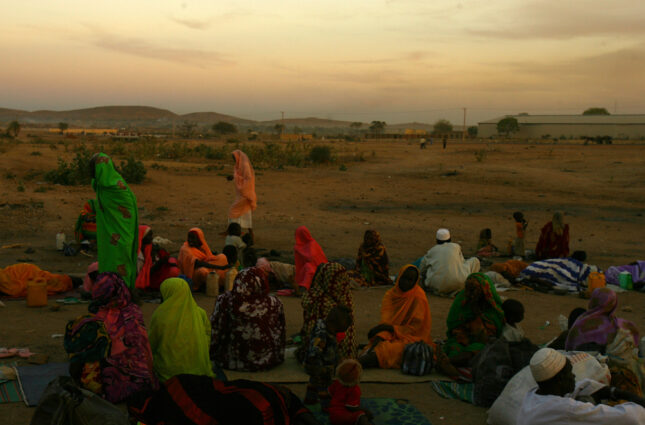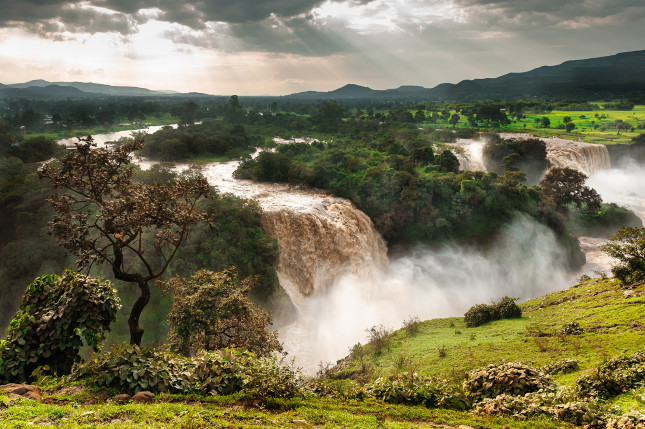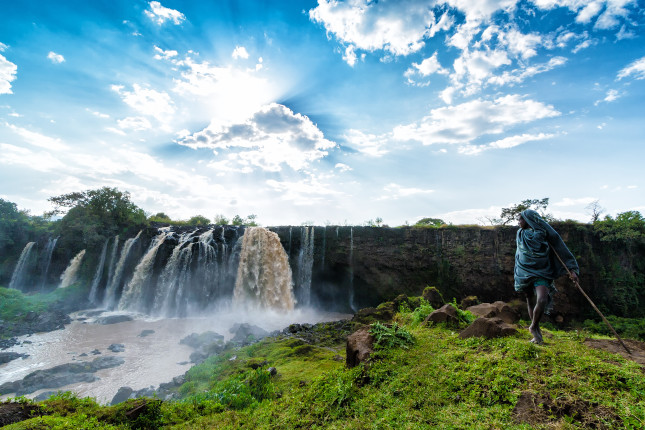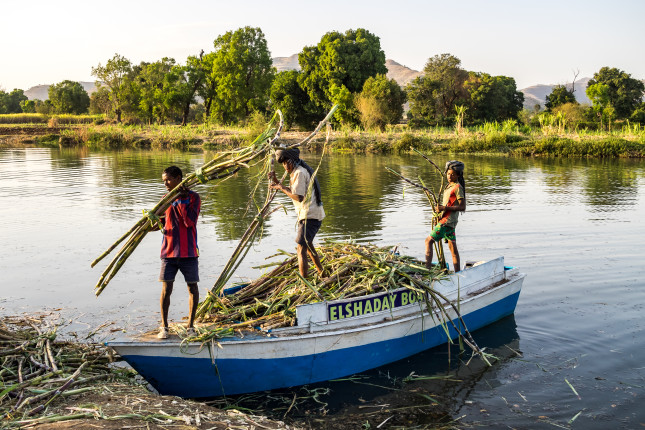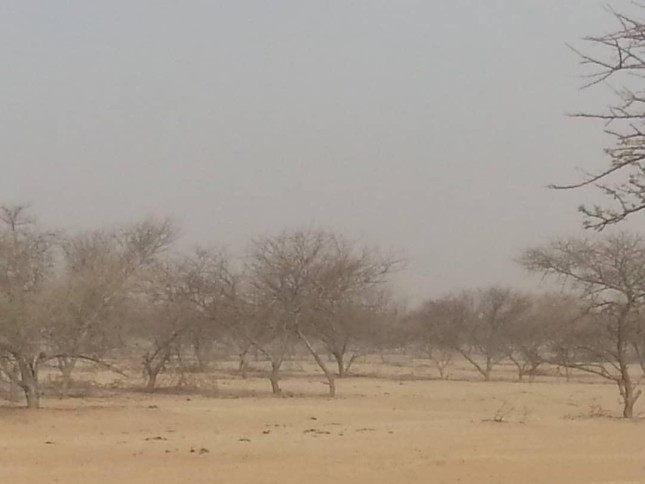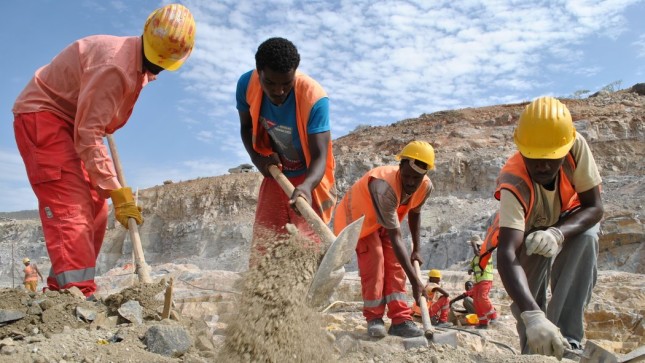-
Economic and Political Fragility and Insecurity: A Climate Triple Threat in South Sudan
›September 3, 2025 // By Rachel Stromsta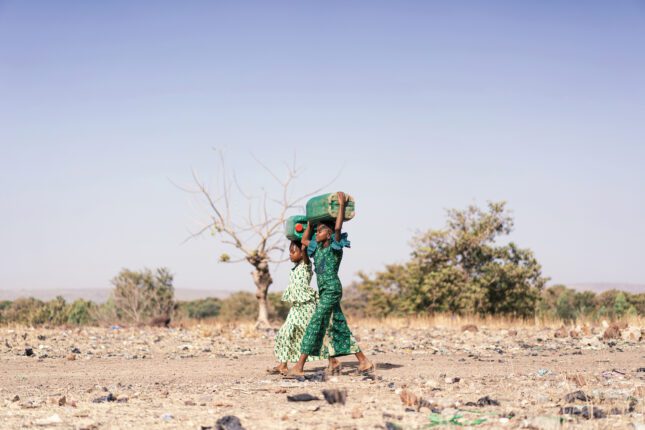
Climate-related catastrophes are posing significant challenges in already-fragile South Sudan. When record-breaking floods again swept across the country in mid-2024, for instance, the disaster affected 1.4 million people, with the cumulative years of flooding submerging two-thirds of the country.
-
ECSP Weekly Watch | August 26 – 30
› A window into what we are reading at the Wilson Center’s Environmental Change and Security Program
A window into what we are reading at the Wilson Center’s Environmental Change and Security ProgramWorld Food Program Faces Scrutiny Over Fraud in Sudan (Reuters)
As Sudan suffers an immense humanitarian crisis due to an ongoing internal conflict between the Army Forces and the paramilitary Rapid Support Forces (RSF), the U.N. World Food Program (WFP) has provided crucial aid to people displaced by the conflict. Yet its ability to continue this crucial work is now under threat because of allegations of illicit activities made against its top officials in that country. These developments have drawn the attention of humanitarian practitioners and diplomats—who also have concerns regarding WFP’s mismanagement and how it might have contributed to the failure to deliver enough aid in Sudan.
-
“A Devastating Toll”: Sudan’s Maternal Health Nightmare
›
Ongoing fighting in Sudan has led to a devastating humanitarian crisis that United Nations Humanitarian and Emergency Relief Chief Martin Griffiths calls “one of the worst humanitarian nightmares in recent history.”
Among the millions of people harmed by the fighting are countless pregnant people and new mothers, who face direct and indirect threats to their health and lives in the country’s renewed conflict. Sudan was already suffering from a maternal mortality crisis prior to the onset of its latest civil war. Before the most recent round of bloodshed, Sudan’s maternal mortality rate stood at 270 deaths per 100,000 live births in 2020 – higher than the global average of 223 deaths. And as this crisis worsens, it is imperative to call attention to what is occurring there.
-
With War Over the GERD Unlikely, Institutionalizing Nile River Diplomacy Would Be a Wise Next Step
›
The Grand Ethiopian Renaissance Dam (GERD) poses numerous challenges for the Nile river basin, but it also presents an opportunity for regional collaboration and shared prosperity, said Aaron Salzberg, Director of the Water Institute at the University of North Carolina and Wilson Center Global Fellow, at a recent event hosted by the University of North Carolina’s Center for Middle East and Islamic Studies.
-
Tensions Surrounding the Grand Ethiopian Renaissance Dam: A Wilson Center NOW Interview with Aaron Salzberg
›
Dams can be a double-edged sword, said Aaron Salzberg, a Wilson Center Global Fellow, Director of the Water Institute at the University of North Carolina, and former Special Coordinator for Water Resources for the U.S. Department of State. He spoke in a recent episode of Wilson NOW about the Grand Ethiopian Renaissance Dam, which will become Africa’s largest hydroelectric dam, once it’s fully operational.
-
Debt on the Nile? Sharing Rivers on the African Continent
›
Trouble is brewing on the Nile. For years, use of the river was mainly about the needs of Egypt, by far the largest and most powerful riparian country in the basin. But since the Arab Spring of 2011, the situation has changed considerably. Egypt’s troubles over the last decade have weakened its ability to project power southward, while upper riparian states—Ethiopia in particular—have enjoyed a period of economic growth and relative stability, which has led them to look at the great river as an important national resource. Tensions have come to a head since Ethiopia announced the construction of the Grand Ethiopian Renaissance Dam (GERD), construction of which is now almost complete. Once full, the resulting reservoir will be larger than the whole of Greater London. Much of the water it holds would have previously reached Sudan and Egypt largely unhindered.
-
How Gum Acacia Trees Could Help Build Peace in the Sahel
›
A special type of tree could facilitate peacebuilding in the Sahel. A stretch of semi-arid land south of the Sahara that runs from the Red Sea to the Atlantic Ocean through 10 countries (Eritrea, Sudan, Chad, Niger, Nigeria, Burkina Faso, Mali, Algeria, Mauritania, and Senegal). But the western subregion covering the Lake Chad area (the intersection of Chad, Cameroon, Nigeria, and Niger) and Liptako-Gourma (the tri-border zone of Burkina Faso, Mali, and Niger) in the Sahel has been the scene of a growing humanitarian crisis. Armed groups are terrorizing local populations. Rampant insecurity has forced 1 million people to flee their homes. People have been cut off from their livelihoods. Food insecurity is worsening. Casualties continue to mount. And climate change will likely exacerbate conditions, forcing more people to compete for depleted forest resources and land. More food shortages and instability will surely follow.
-
Nile River Water Supply Forecasts May Reduce the Chance of Conflict
›
Rising tensions between Egypt and Ethiopia over construction of the Grand Ethiopian Renaissance Dam (GERD) have led to speculation that there could be a war over water. When completed, the dam will be the largest in Africa. And it will give Ethiopia control over the Blue Nile River, a major source of Egypt’s water.
Showing posts from category Sudan.



